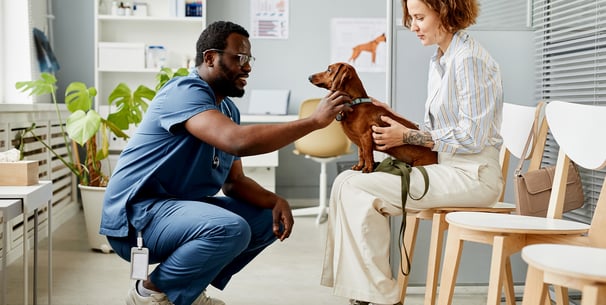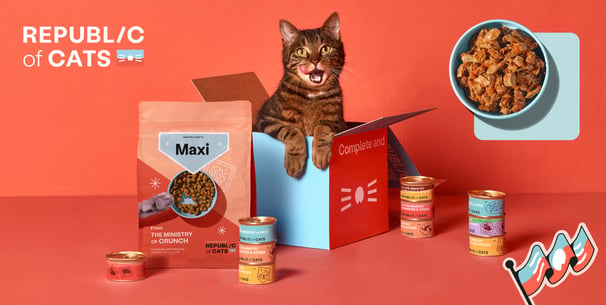Cat Swollen Lip - Causes, Symptoms and Remedies
Index:



Introduction
As a cat owner, the health and happiness of our feline friends occupy a precious space in our hearts.
Nothing evokes concern quite like noticing something amiss with our pet, such as a cat's swollen lip.
Neglecting such a symptom could mean overlooking factors pivotal to your cat's health.
Key takeaways
Recognise the signs that your cat may have a swollen lip and the potential health implications.
Understand the common causes of swollen lips in cats to better identify preventive measures.
Learn the symptoms that accompany a swollen lip in felines and when these indicate a need for veterinary care.
Discover home remedies that may assist in comforting your cat but know when these are insufficient.
Gain insights into the diagnosis and treatment processes that a veterinarian may undertake for a swollen lip in cats.
Appreciate the importance of managing cat health proactively to prevent and address lip swelling.



What causes a swollen lip in cats?
When a feline companion develops a swollen lip, it is often a sign of underlying health concerns.
Whilst the causes are numerous, certain conditions frequently emerge as primary catalysts for this ailment, demanding a closer look.
Common causes of lip swelling in felines
Swollen cat lip triggers include a diverse array of conditions ranging from infections to autoimmune disorders.
Periodontitis and gingivitis can both lead to inflammation, causing not only discomfort but also visible swelling.
Moreover, trauma to the lips from fights or accidents can result in localised swelling as the tissue reacts to the injury.
It's important to try and investigate if your cat has had a recent fight or accident when out and about on their adventures.
Preventive dental care is also crucial in avoiding conditions that cause lip swelling. Gain valuable tips from our article on pet dental care to keep your cat's mouth healthy.
Eosinophilic granuloma complex
The eosinophilic granuloma complex, often presenting on the top lip rather than a swollen bottom lip.
This is also often called a rodent ulcer and poses a significant concern. This autoimmune response to a variety of stimuli, including fleas and food allergies, leads to a characteristic swelling of the lip.
These granulomas can form anywhere on a cat's skin but are particularly disconcerting when they affect the lip area due to the susceptibility to secondary infections.
Allergies and their role in lip swelling
Allergies are among the most common causes of swollen lips in cats. These can range from reactions to environmental allergens such as pollen mites, and moulds, to more direct causes like insect stings or bites.
The resulting inflammation, termed allergic dermatitis, can cause considerable discomfort and swelling in affected cats. It is crucial to identify these triggers to alleviate the cat's symptoms and prevent recurrence.
By understanding the various causes and their manifestations, cat owners can play a pivotal role in the early identification and treatment of lip swelling.



Symptoms to watch for: does your cat have a swollen lip?
As a conscious cat owner, it's vital to stay alert to subtle changes in your cat's health. A swollen upper or lower lip in cats can develop from various underlying causes and recognising the symptoms early might prevent further complications.
Observing your cat's usual demeanour and physical appearance is key to noticing any unusual signs.
For more on drooling and its implications, including when the cat may need veterinary assistance, see our guide on why cats dribble.
Accompanying symptoms: from ulcers to lesions
In conjunction with looking for swelling, you may observe symptoms of swollen lip such as:
Ulcers on cat's lip: You may notice swelling that pushes the lip into an indolent ulcer, particularly on the bottom lip. These could present as open sores or crusted areas, possibly oozing and causing discomfort.
Lesions: Either on the upper lip or a swollen bottom lip in cats. Signs of lesions like raw, red patches or bumps, which may progress to more serious necrotic conditions.
Behavioural changes: These are often linked to oral pain, such as reduced appetite or reluctance to play with chew toys.
Gastrointestinal upsets: A cat can ingest infected material while grooming. If your cat exhibits additional symptoms like vomiting, it's vital to address these concerns promptly with your vet.
Other systemic signs range from halitosis—often a tell-tale sign of dental disease—to excessive drooling. Always be on the lookout for any unusual oral discharges, as well.
When swelling pushes the lip: recognising the severity
It's critical to acknowledge the gravity of swelling that alters your cat’s facial structure; a lip that is pushed outward or hangs abnormally indicates an urgent need for a vet’s diagnosis.
Such progression could mean that underlying issues, perhaps initially minor, have escalated in severity.
Diagnosing swollen lips in cats: when to visit your vet
If your feline friend is showing signs of a swollen lip, it may raise concerns about their well-being.
It's important to understand when these symptoms warrant a professional vet diagnosis of swollen lips in cats.
Timely intervention can make all the difference, ensuring your pet receives appropriate care and treatment.
Cats might also develop skin tags around the mouth or elsewhere, which can be mistaken for swelling.
For a deeper understanding of this condition, read about cat skin tags and what they signify for your pet's health.
Underlying causes that demand a vet's attention
Several health issues can lead to swollen lips in cats, including eosinophilic granuloma, dental abscesses, and chin acne.
More serious conditions like squamous cell carcinoma may also manifest similarly.
If you note persistent swelling, or if the lip appears to cause discomfort or pain to your cat, it's crucial to seek vet advice about your cat’s swollen lip without delay.
How your veterinarian may diagnose the issue
Determining the root cause of a swollen lip involves a thorough vet examination. This may span from lesion assessment to comprehensive diagnostics including blood tests, X-rays, and possibly a biopsy.
These procedures are integral to identifying the best course of action for your cat's health.



Food allergies: adjusting your cat's diet
Food allergies can be the culprits behind your cat's swollen lip. Adjusting your cat's diet to eliminate allergens can be a helpful strategy.
Specific foods such as hypoallergenic diets may help but you should always consult a veterinarian before adjusting your cat's diet for allergies.
For comprehensive insights into cat food allergies, check out our exploration of cat food allergies and symptoms.
Maintaining a flea-free environment for your cat
Fleas are a common cause of allergic reactions in cats leading to conditions like eosinophilic granuloma, which can result in lip swelling.
Maintaining a flea-free environment for cats is crucial to preventing swollen lips.
This may include regular use of flea preventatives, checking your pet’s coat after outdoor activities, and keeping the home environment clean.
Professional treatment options for a swollen cat lip
When your feline companion presents with a swollen lip, it's vital to explore the appropriate professional treatment alternatives.
The role of medications in treatment
Medicinal approaches often constitute the first line of defence against a swollen cat lip.
Common medications for swollen cat lip include immunosuppressive agents like corticosteroids, which effectively reduce inflammation and are particularly beneficial for allergic reactions or auto-immune conditions such as eosinophilic granuloma.
Cyclosporine is another therapeutic option that's used under professional guidance to manage immune-mediated disorders without substantial side effects.
Ensuring adherence to the vet-prescribed medication regimen is a pillar of professional cat swollen lip treatment.
Surgical intervention for severe cases
In instances where the swelling is due to more serious health concerns, such as extensive dental disease, abscesses, or growths, surgical treatment for the cat's swollen lip might be necessary.
Such procedures are meticulously conducted by veterinary surgeons and aimed at correcting underlying issues, providing both immediate relief and preventing future complications.
The decision to proceed with surgery is not made lightly and is based on comprehensive examinations and diagnostics.
Conclusion
A swollen lip in cats is a common ailment that should not be taken lightly, as it may indicate various underlying health conditions, ranging from eosinophilic granuloma complex to more severe dental diseases. By understanding and managing cat lip swelling, caregivers can ensure prompt and effective responses to this uncomfortable symptom.
The cost of treatments for conditions leading to swollen lips can be mitigated with the right insurance plan. For advice on navigating your options, consult our cat insurance guide.
FAQs
What are the common causes of swollen lips in cats?
Swollen lips in cats can be caused by various conditions such as eosinophilic granuloma complex, dental diseases, allergic reactions, feline acne, chin acne, abscesses, or more seriously, tumours like squamous cell carcinoma.
How can I tell if my cat has a swollen lip?
Check both upper and lower lips for signs such as abnormal redness, swelling, sores, or ulcers. Look out for accompanying symptoms like bad breath, difficulty during eating, drooling, or missing teeth, which could suggest underlying dental issues.
When should I take my cat to the vet for a swollen lip?
If you notice any swelling that changes the shape of your cat's lip, detect foul breath, signs of pain, or difficulty when your cat is eating, these could signify serious conditions that require immediate veterinary attention.
What might a vet do to diagnose a swollen lip in my cat?
A vet will likely perform a thorough examination of your cat's mouth, which may include blood work, X-rays, a dental assessment, and possibly a biopsy, depending on the suspected cause of the swelling.
Are there effective home remedies for treating a cat's swollen lip?
While some home remedies might offer temporary relief for conditions like feline acne, it is crucial to consult with a vet to ensure that home treatments are safe and effective and don’t miss a more serious underlying health issue.
How can I prevent my cat from getting a swollen lip?
Preventing swollen lips in cats involves regular dental check-ups, maintaining a clean and flea-free environment, effectively managing potential food allergies by identifying and avoiding allergens, and keeping a close watch on your cat’s health and behaviour.
What professional treatments are available for a cat with a swollen lip?
Treatment options vary depending on the diagnosis and can include medications like corticosteroids, immunosuppressive drugs, antibiotics, and sometimes surgical intervention in severe cases, along with a dedicated aftercare regimen to promote healing.
Why is clean water important for cats with swollen lips?
Clean and fresh water supports the overall health of your cat and is particularly beneficial during recovery from illness or surgery by helping to flush out toxins and keep your cat hydrated, contributing to the healing process.
Waggel Pet Insurance
Need more help? You're in luck if you're a Waggel Pet Insurance member. Along with our excellent coverage, we offer access to a 24/7 online vet to answer all your sticky questions, especially if you need grooming assistance.
Not a member? Why not get a quote now and cover your furry friend for a range of illnesses, all while enjoying our amazing perks and rewards.
Want more like this?
Get updates from us with helpful info, advice, answers to frequently asked questions and much more.
Index:
Related posts:
Get your quote
Along with our excellent coverage, we offer access to a 24/7 online vet to answer all your sticky questions.





